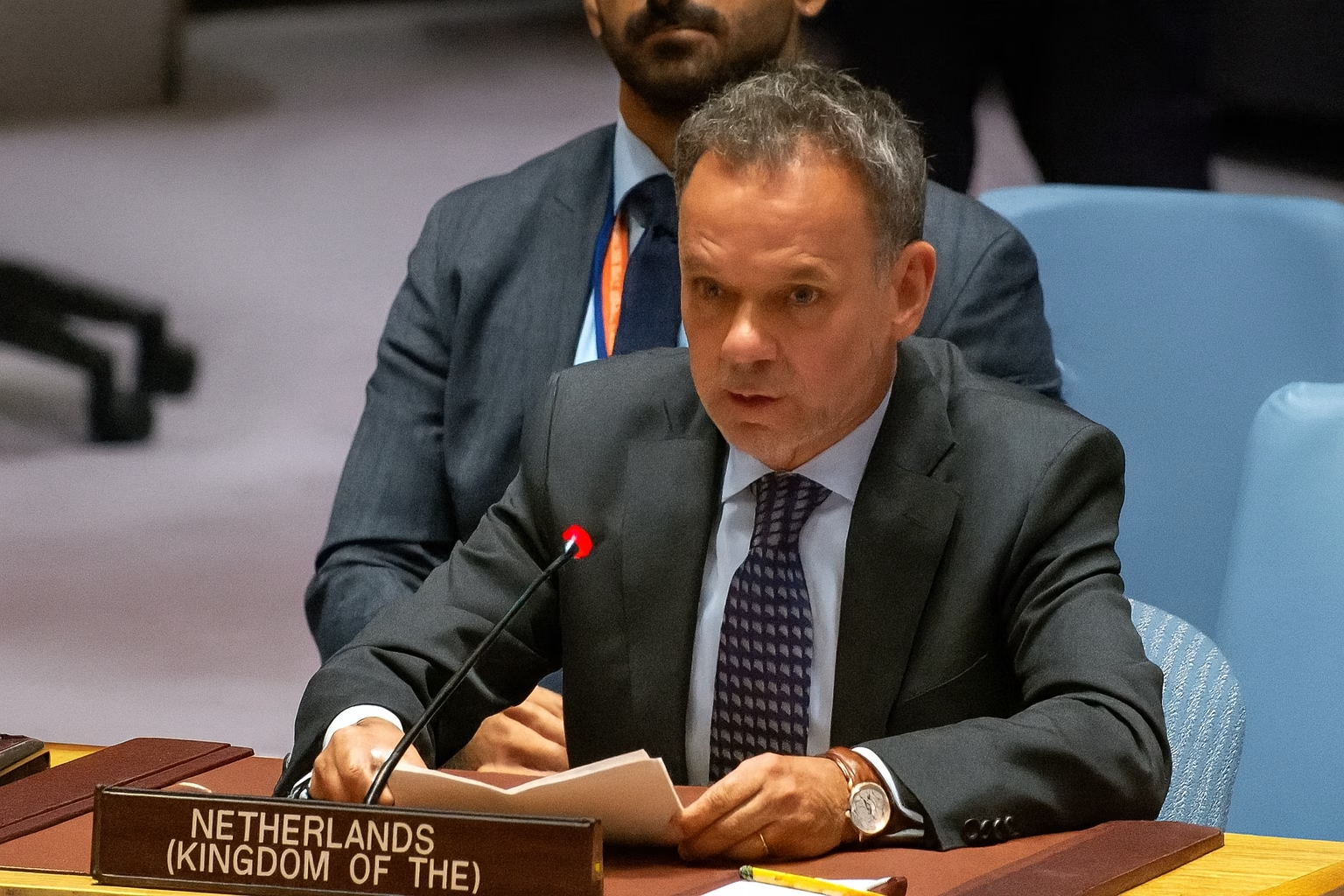A rift in the Dutch caretaker government has escalated into a full-blown political crisis following the dramatic resignation of two senior ministers over the coalition’s refusal to take punitive action against Israel’s military operations in Gaza.
Dutch Foreign Minister Caspar Veldkamp, alongside Minister for Foreign Trade Hanneke Boerma, has exited the caretaker coalition, a move that has left the governing bloc with just 32 of the 150 seats in the Dutch House of Representatives. The departure of both ministers, members of the Social Contract Party (NSC), underscores deep divisions within the government over the country’s stance on Israel’s ongoing campaign in Gaza.
The NSC made their position public in a statement issued on Friday, citing Israel’s intensifying bombardment of Gaza as the tipping point.
“Additional measures” were sought against Israel in light of the “increasingly deteriorating humanitarian situation in Gaza,”
the statement read.
While the NSC pushed for decisive steps—including a proposed import ban on goods produced in Israeli settlements located in occupied Palestinian territories—its coalition partners refused to endorse such sanctions. This disagreement led the NSC to formally withdraw from the governing coalition, as confirmed by the Dutch foreign ministry on Saturday.
“After a meeting of the cabinet on the situation in Gaza,”
the ministry noted,
“the Social Contract (NSC) party, of which both officials are members, decided to withdraw from the caretaker coalition government.”
The resignation of Veldkamp is particularly striking given his diplomatic background. As a former ambassador to Israel, his views carry weight in shaping the Netherlands’ foreign policy towards the region. His advocacy for economic measures, including the banning of imports from Israeli settlements, was seen as an attempt to align the Netherlands with growing international concern about Israel’s conduct in Gaza.
“After weighing the moral, legal, and humanitarian consequences, I could no longer justify remaining part of a government that refuses to act,”
Veldkamp reportedly told aides prior to his resignation, according to insiders familiar with the cabinet deliberations. While that quote was not officially published, his party’s website makes clear that the decision was not made lightly.
The international backdrop to this political fallout is increasingly volatile. The Israel Defense Forces announced earlier this week that it had launched an operation to assert full control over Gaza City, signalling an escalation of its military campaign. The military conflict was triggered by a Hamas attack on southern Israel on 7 October 2023, in which approximately 1,200 people were killed and 250 taken hostage.
In response, Israeli forces have conducted widespread air and ground operations across Gaza. According to the Hamas-run health authorities in Gaza, over 62,000 people—most of them civilians—have been killed since the Israeli offensive began. These figures have drawn widespread international condemnation and renewed calls for diplomatic and economic measures against Israel.
The Netherlands had already taken some steps before the ministers’ resignations. In July, Amsterdam declared two hardline Israeli ministers persona non grata, signalling disapproval of Israel’s settlement policies. More recently, the Netherlands joined 20 other countries in signing a declaration denouncing Israel’s plans to build new settlements in the occupied West Bank.
Meanwhile, the global diplomatic climate continues to shift. European Union member states, traditionally aligned with Israel, are beginning to reconsider their policies. Spain’s Foreign Minister, Jose Manuel Albares, called in June for the European Union to
“immediately suspend” the EU–Israel association agreement and impose a ban on arms sales to Israel.
Such calls have grown louder as the humanitarian toll in Gaza rises.
The United Kingdom and France, among other Western powers, have also begun signalling a potential shift. Increasingly, these nations are expressing openness to formally recognising Palestinian statehood—an idea that had long been considered politically sensitive in Western capitals.
Against this turbulent backdrop, the resignations from the Dutch cabinet take on deeper significance. They reflect not just a domestic political rupture, but a wider reassessment among Western governments of their historic alliances and diplomatic priorities in the Middle East.
Though the Dutch government now finds itself weakened and facing the challenge of maintaining even a symbolic governing presence, the message from the resigning ministers is clear: silence and inaction are no longer acceptable responses to a humanitarian crisis of this scale.

















